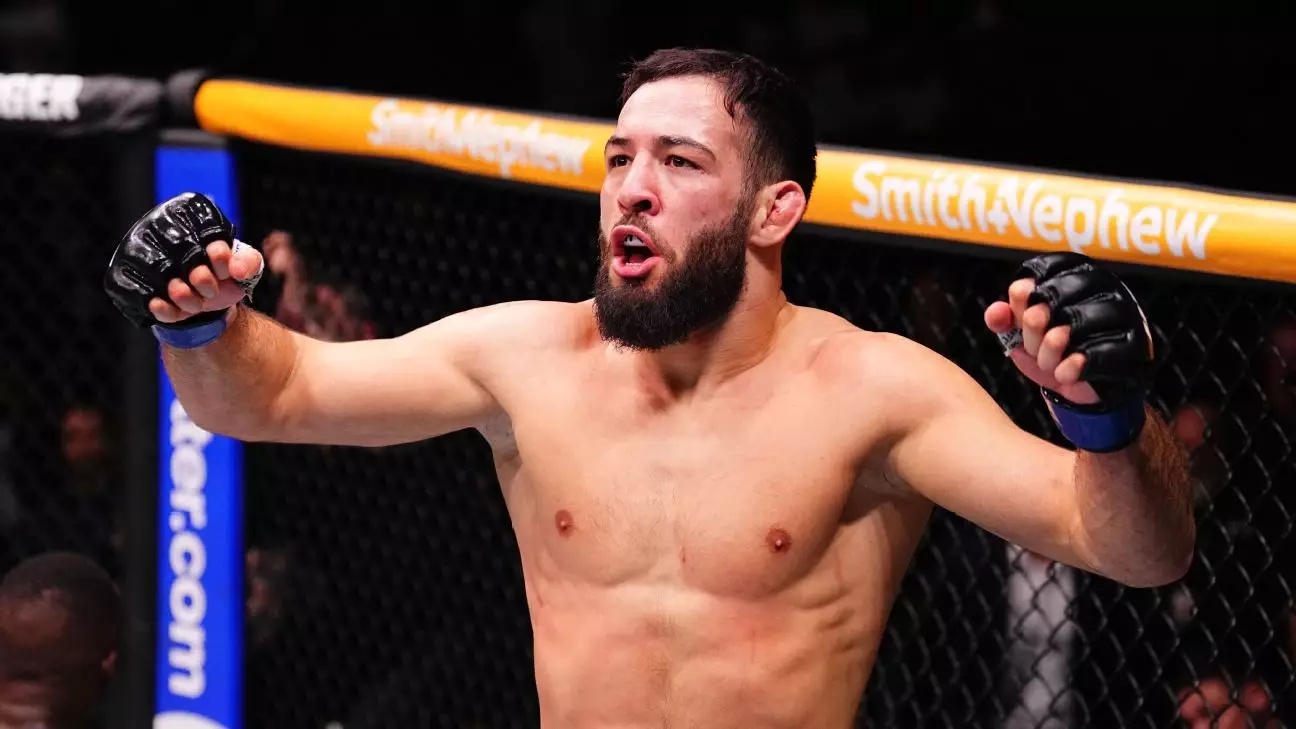The world of mixed martial arts (MMA) is no stranger to dramatic narrative arcs, and Israel Adesanya’s professional journey has taken a significant turn following a recent defeat. Once hailed as the middleweight champion, Adesanya’s loss to Nassourdine Imavov at UFC Fight Night in Saudi Arabia marks a critical juncture that could reshape his legacy in the sport.
Adesanya, boasting a record of 24 wins and 5 losses, faced Imavov, who entered the bout with a 16-4 record. The fight, which was notable for being Adesanya’s first non-title fight since 2019, resulted in a TKO just thirty seconds into the second round. Imavov’s calibrated strikes, particularly a right hand followed by a powerful left, sent Adesanya crashing against the fence, leading to a swift intervention by referee Marc Goddard. Although Adesanya attempted to mount a comeback, his coverage on the ground ultimately led to the fight’s abrupt ending. The outcome casts doubt on Adesanya’s title aspirations and raises questions about his future in the sport.
Imavov, on the other hand, celebrated a monumental victory that positions him firmly in the discussion for a title shot. His post-fight remarks exuded confidence as he declared his readiness to challenge for the title, emphasizing that four victories within a single year speak volumes about his capabilities. This performance not only elevates Imavov’s career but also solidifies his place among the top contenders in the UFC middleweight division.
Adesanya’s recent performance sheds light on the potential diminishing of his once-feared fighting style. Despite displaying some effective tactics, such as body kicks and an early advantage in total strikes, the fight highlighted a stark reality: aging and increased competition in the division can significantly impact a fighter’s effectiveness. Once recognized for his striking precision and elusiveness, Adesanya now finds himself grappling with a series of disappointing results—four defeats in his last five fights.
The change has also been physical; Adesanya has suffered knockouts in two of his last three bouts after having never been knocked out before in his entire career. This shift raises concerns regarding his longevity and ability to adapt in a sport that incessantly evolves and tests its athletes beyond their physical capabilities.
At 35 years old, the question of Adesanya’s trajectory looms large. After taking nearly a year off following a surprising loss to Sean Strickland in September 2023, he made a comeback only to face another setback. Although UFC CEO Dana White acknowledged Adesanya’s impressive opening round against Imavov, the disappointment of failing to capitalize on that momentum has been reiterated by analysts and fans alike. White’s comments about Adesanya’s early performance contrasted sharply with the unfortunate conclusion of the fight, leaving a lingering sense of uncertainty about what the future holds for one of the sport’s more colorful personalities.
The upcoming title rematch between Dricus Du Plessis and Sean Strickland adds another layer of complexity to Adesanya’s situation. With a potential title shot within reach for both fighters and the undefeated Khamzat Chimaev lurking in the wings, the path back to championship glory becomes increasingly restricted for Adesanya, who must now reassess his strategies moving forward.
For Israel Adesanya, the path forward involves introspection and grit. A renowned striking artist with a historical repertoire, he must confront the burgeoning challenges of an evolving sport and navigate a future that is no longer characterized by clear-cut victories. The pressure mounts as fans and critics alike ponder whether the fighter who climbed to great heights can reclaim his status. Adesanya’s legacy will be defined not only by past glory but by his ability to adapt, overcome, and inspire in the face of adversity. The clock is ticking, and only time will tell if he can reshape his narrative into one of redemption and resurgence.


Leave a Reply